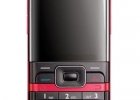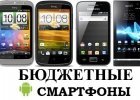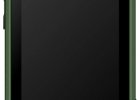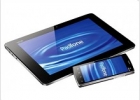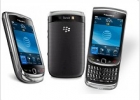Frustrated that mobile makers refuse to develop strong internet handsets for under $500, 3 parent Hutchison has created its own $179 hyper-connected phone under a new brand, INQ.
Some have dubbed it the "Facebook phone" as it is the first to fully integrate the social network into the phone's address book and message inbox. The 3G handset has also been built around Skype and Windows Live Messenger.
The INQ phone can be bought from 3 for $179 on prepaid or free on a $39 a month two-year plan. It will be available before Christmas.
Frank Meehan, the Australian chief executive picked to run INQ's global operations, said while expensive handsets like the iPhone, BlackBerry and Windows Mobile devices grabbed headlines, 90 per cent of phones sold were cheap, basic devices.
The trouble for carriers like 3 is that those cheaper phones have appalling, clunky internet features, so they are rarely used for browsing the web, equating to swathes of lost revenue for mobile operators.
And with devices like the iPhone, which 3 does not sell, the high up-front cost for carriers means they have to charge hefty amounts for data plans just to earn a profit.
Announcing its second quarter results, Optus singled out high iPhone subsidies as putting a $44 million dent in its profits for the three months to September 30.
"Frankly, we didn't have anything under $500 that was good enough to push an internet package, so we went to Nokia and Sony Ericsson and tried to get them to do it, couldn't, they weren't ready for it, so we said OK we're going to do this ourselves," Meehan said in an interview.
"All of the vendors have spent billions on going after the iPhone, so what you've got is this huge range of very high-end devices but nothing good for the 90 per cent of the market that can't afford it ... the only thing they've bothered to innovate is the camera."
Pitched as an internet communications device rather than a multimedia-rich iPod replacement, the INQ phone's strength is in its software, even though a 3.2 megapixel camera and MP3 player are built in.
Meehan's team has spent two and a half years designing the software so that Facebook, Skype, Windows Live Messenger and email are integrated into the device from the ground up and optimised to run on the 2.2-inch screen.
Users simply have to sign in to those services once and from then on they are always connected, with notifications of new messages popping up along the top of the phone. Scrolling through the applications is achieved by pushing a single button on the side.
"It's making it really simple and really always on and it's in the background - the customer doesn't have to remember to start anything up," Meehan said.
Warren Chaisatien, research director at communications market research company Telsyte, said the INQ phone would fill a void in the market as a recent study had shown there were no competent smartphones at the $200-$300 price point.
"As people migrate from a regular phone or a 'dumb' phone to a smartphone for the first time, there's no offering in the Australian market that accommodates those users," Chaisatien said.
When a contact is added to the phone's address book, as well as the usual details there is room for their Skype, Windows Live Messenger and Facebook accounts. The phone can be set to automatically grab the latest profile photo and status update from the contact's Facebook account, which are displayed against their contact details.
All of the above services are integrated into a single message inbox. Making a call or sending an SMS is as simple as placing a Skype call or sending a Facebook message.
Unlike the iPhone, BlackBerry and Android phones, there will be no app store for INQ devices, so users are largely limited to the four apps that come pre-installed on the phone and those found on the Planet 3 portal.
The portal contains quick links to mobile-optimised sites such as eBay, YouTube and MySpace.
There are also several widgets users can add to the phone's main screen including Yahoo! Weather, Google Search, a world clock and RSS feeds for up-to-the-minute news.
Meehan said the INQ range would be expanded to four or five devices next year, but he was "not interested in the slightest in competing with the BlackBerrys and the iPhones".
Indeed, while the INQ phone has a web browser, it's not as slick or effective at surfing the open web as the iPhone, which displays web pages as they appear on a PC. With INQ, internet communication is best done through the integrated apps.
Nigel Dews, CEO of 3, said: "If you compare it to an N95 or a G1 [Google phone] you'll be disappointed, but that's a completely different price league."



